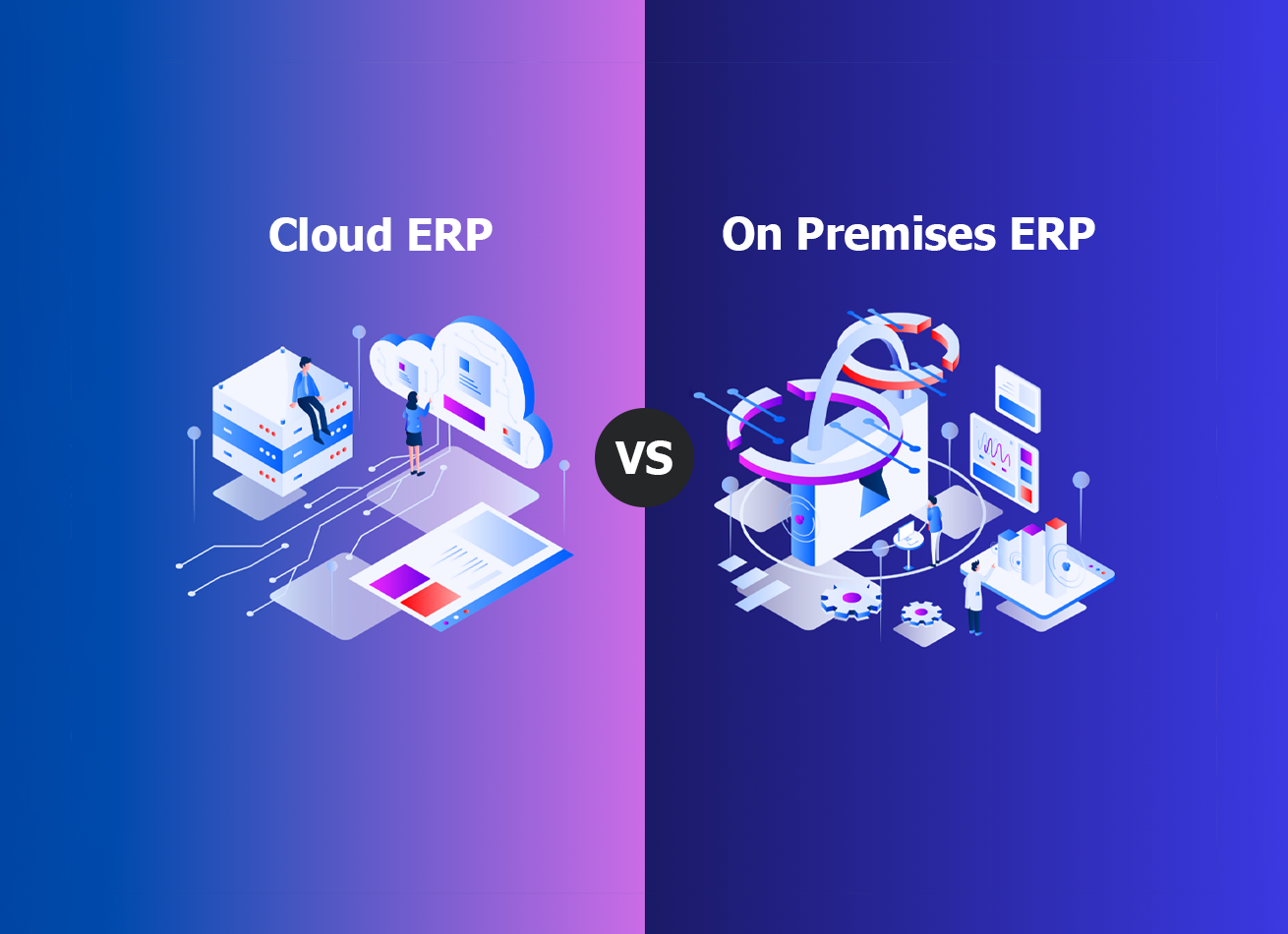Choosing the right ERP (Enterprise Resource Planning) solution is a critical decision for any business. With the increasing popularity of cloud-based ERP systems, many companies are evaluating whether to stick with traditional on-premise ERP solutions or embrace the cloud. Both options have unique advantages and drawbacks, and the best choice depends on your business’s specific needs and goals.
Let’s dive deeper into the pros and cons of cloud ERP and on-premise ERP to help you make an informed decision.
What Is Cloud ERP?
Choosing the right ERP (Enterprise Resource Planning) solution is a critical decision for any business. With the increasing popularity of cloud-based ERP systems, many companies are evaluating whether to stick with traditional on-premise ERP solutions or embrace the cloud. Both options have unique advantages and drawbacks, and the best choice depends on your business’s specific needs and goals.
Let’s dive deeper into the pros and cons of cloud ERP and on-premise ERP to help you make an informed decision.
Advantages of Cloud ERP:
- Lower Upfront Costs: No need for costly hardware or on-premise servers; businesses typically pay a subscription fee.
- Scalability: Easily scale up or down based on your business’s growth and needs.
- Accessibility: Access the ERP system from anywhere with an internet connection, enabling remote work.
- Automatic Updates: Vendors handle updates and upgrades, ensuring you always use the latest features.
- Faster Deployment: Implementation is quicker compared to on-premise systems.
Disadvantages of Cloud ERP:
- Ongoing Costs: Monthly or annual subscription fees can add up over time.
- Dependency on Internet: Requires a stable internet connection for uninterrupted access.
- Limited Customization: Some cloud ERP systems may not allow extensive customization.
- Data Security Concerns: While most vendors offer robust security, some businesses may hesitate to store sensitive data offsite.
What Is On-Premise ERP?
On-premise ERP systems are installed locally on your business’s servers and maintained in-house.
Advantages of On-Premise ERP:
- Full Control: You have complete ownership of your ERP system and data.
- Customizability: Offers extensive customization options tailored to specific business processes.
- No Dependency on Internet: Since it’s hosted locally, internet outages won’t disrupt operations.
- Long-Term Costs: Avoid recurring subscription fees, making it potentially more cost-effective in the long run.
Disadvantages of On-Premise ERP:
- High Initial Investment: Requires significant upfront costs for hardware, software, and setup.
- Maintenance Responsibility: Your IT team must handle updates, maintenance, and security.
- Limited Scalability: Expanding or upgrading the system can be challenging and costly.
- Longer Deployment Time: Implementation often takes more time compared to cloud solutions.
Key Factors to Consider When Choosing Between Cloud and On-Premise ERP
Business Size and Budget
- Small and medium-sized businesses with limited budgets often prefer cloud ERP due to its lower initial cost.
- Larger enterprises with robust IT resources may find on-premise ERP a better long-term investment.
Scalability Needs
- If your business expects rapid growth or fluctuating resource needs, a cloud ERP system offers the flexibility to scale.
Customization Requirements
- Businesses with unique processes or industry-specific needs may benefit from the customizability of on-premise ERP.
Data Security and Compliance
- Highly regulated industries may prefer on-premise ERP for complete control over sensitive data.
- Cloud ERP vendors often comply with major security standards, which may suffice for less regulated sectors.
IT Infrastructure
- Companies with a strong in-house IT team may opt for on-premise ERP to manage the system.
- Those lacking IT resources typically choose cloud ERP for vendor-managed maintenance.
Industry Trends: The Rise of Hybrid ERP
For businesses torn between cloud and on-premise ERP, hybrid ERP solutions are gaining traction. These systems combine the best of both worlds, allowing certain modules to run on-premise while others operate in the cloud. Hybrid ERP offers flexibility and customization, making it an attractive option for many industries.
Which ERP Solution Is Right for Your Business?
There’s no one-size-fits-all answer. The best ERP system for your business depends on your unique needs, industry requirements, and long-term goals.
If you’re still unsure, consulting with ERP experts can help you weigh your options and implement the ideal solution. With years of experience in both cloud and on-premise ERP systems, Redvertix can guide you through the decision-making process and ensure a smooth implementation.
Contact us today to explore the best ERP solution for your business.


